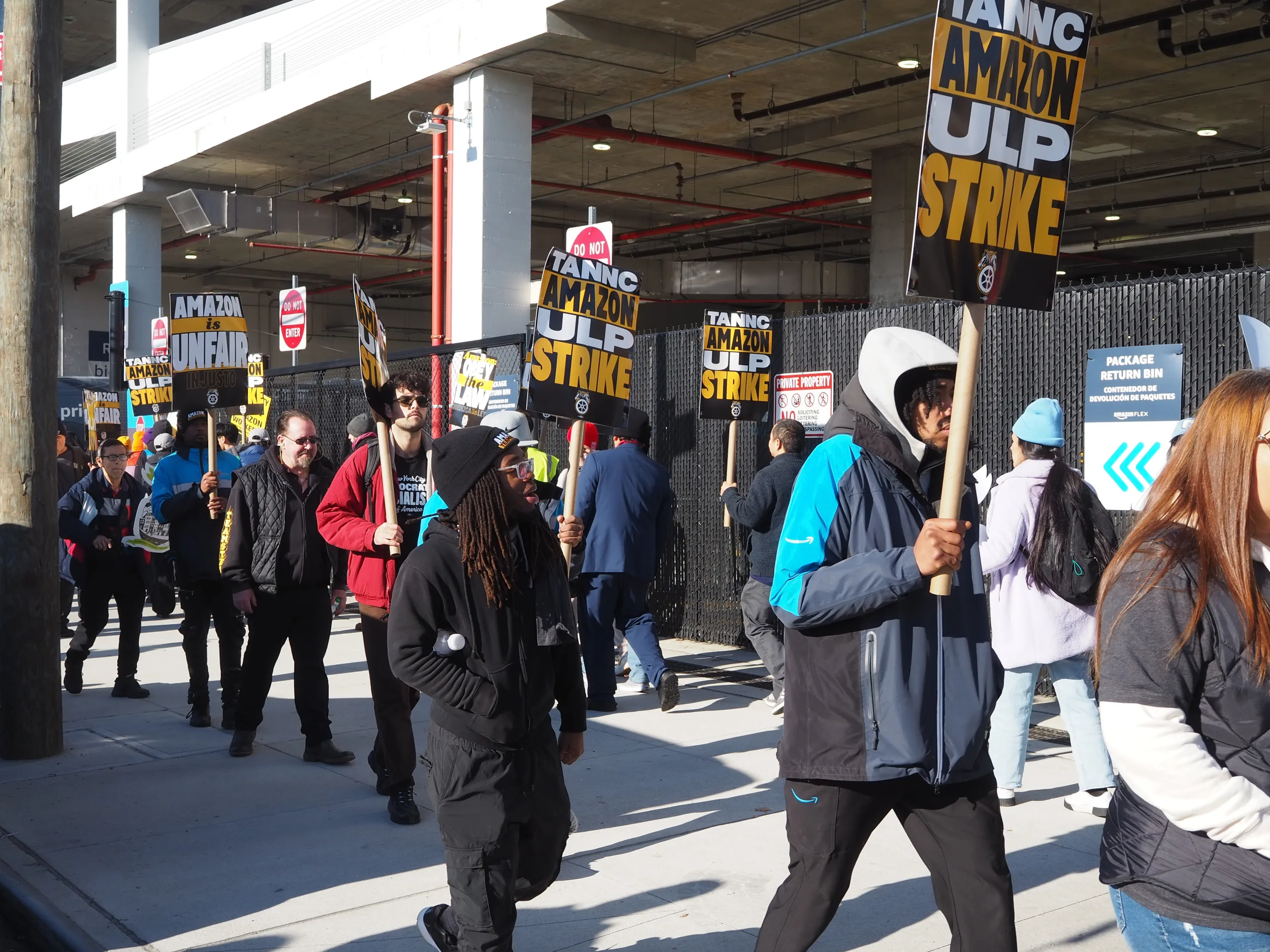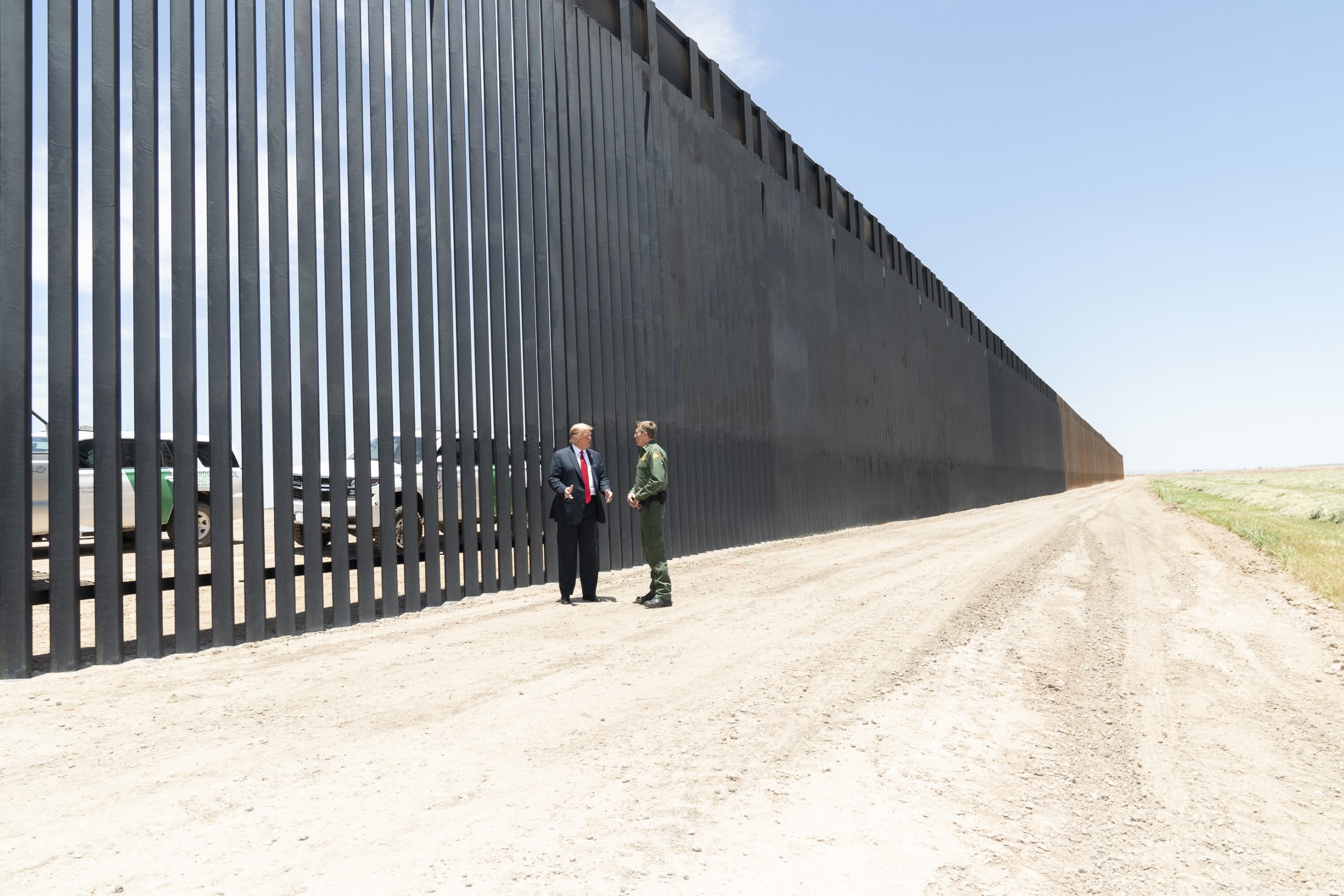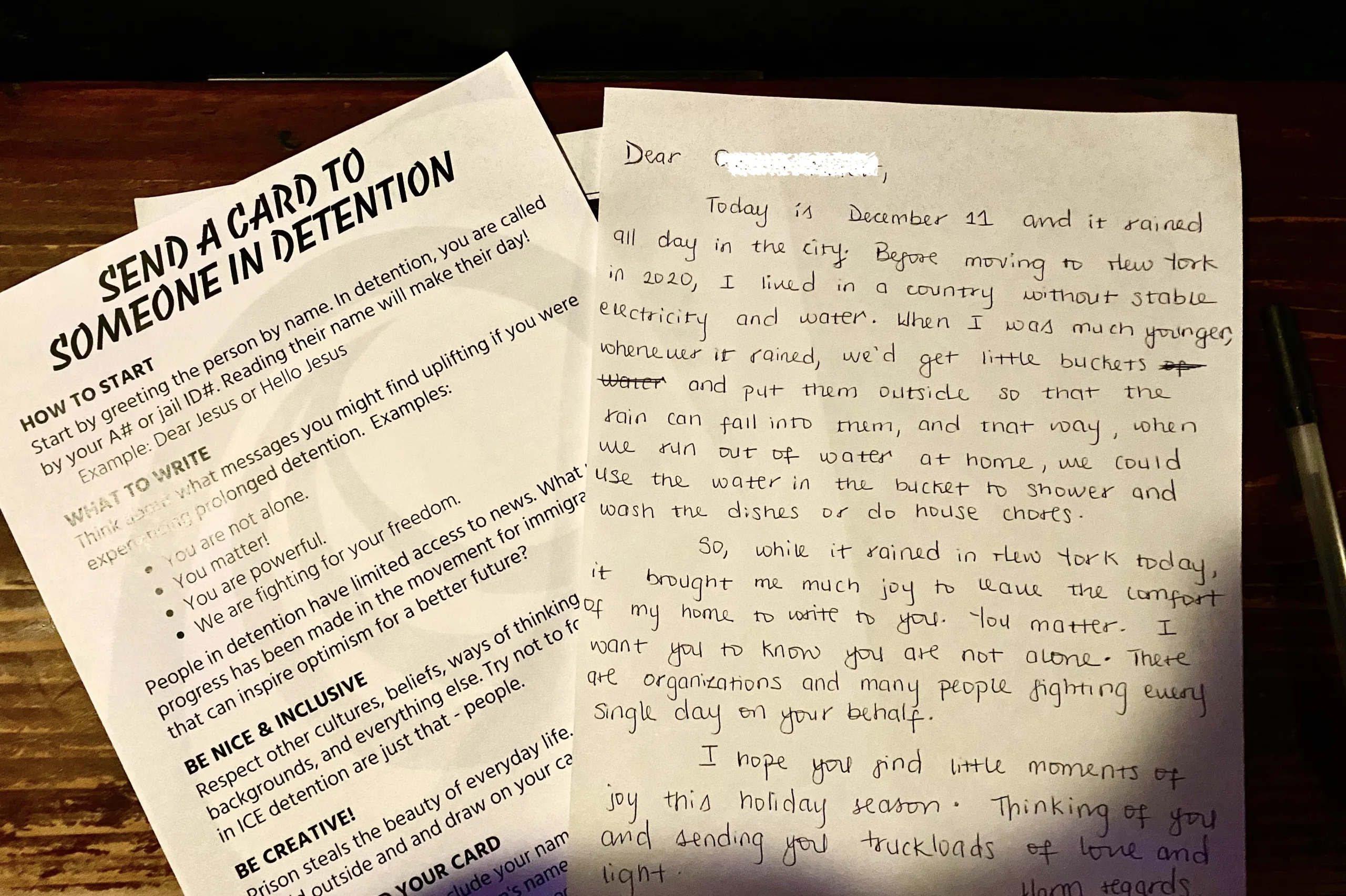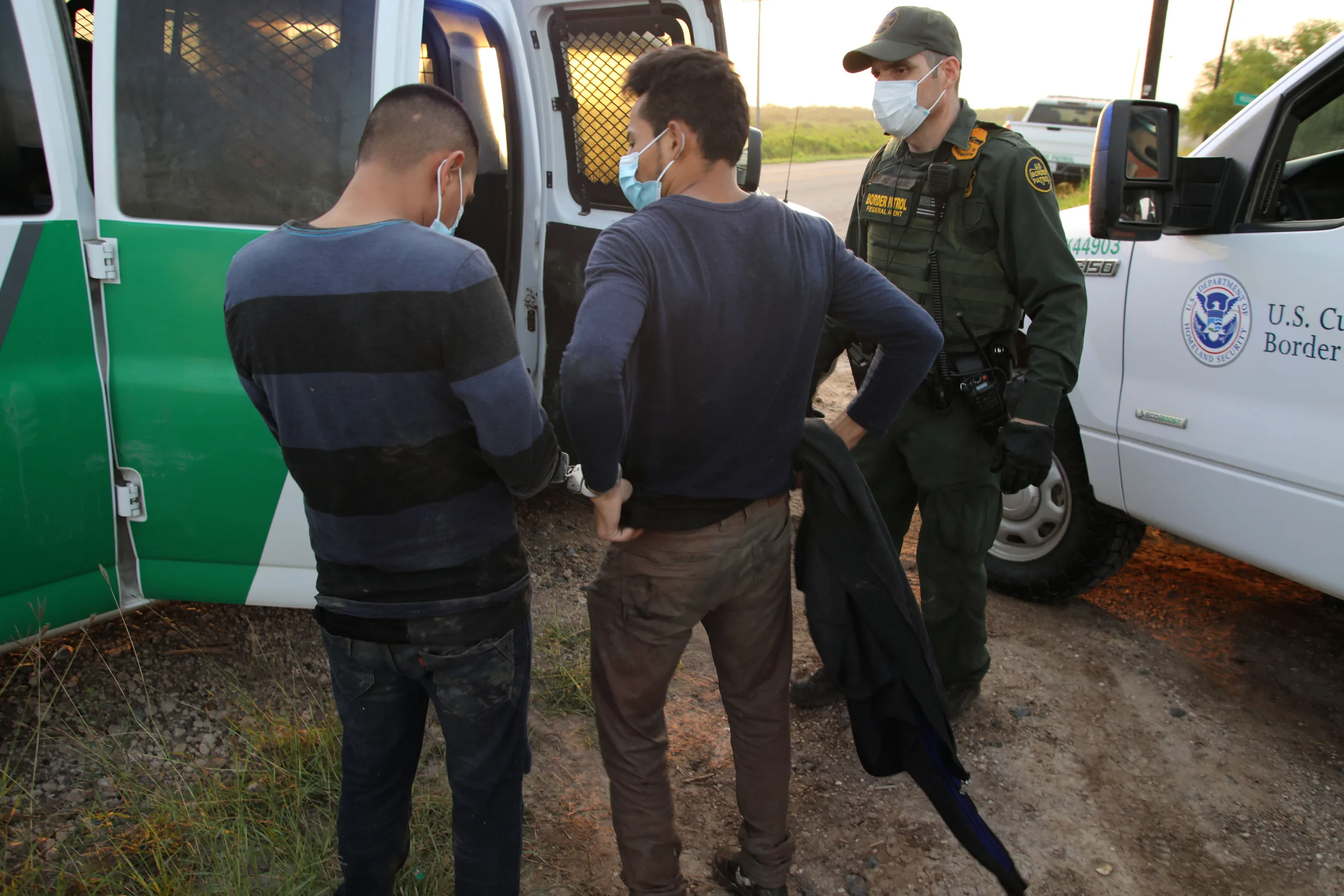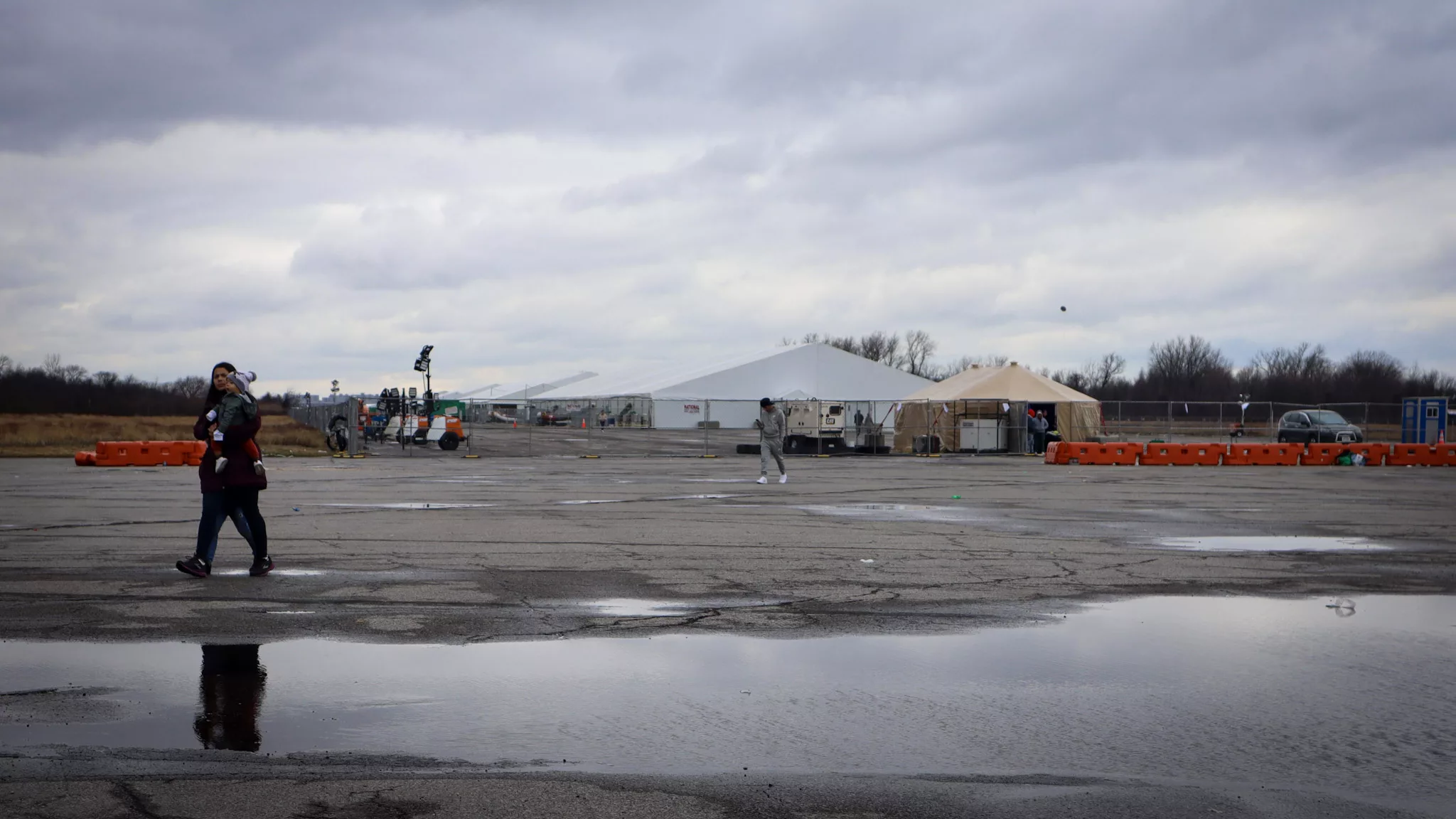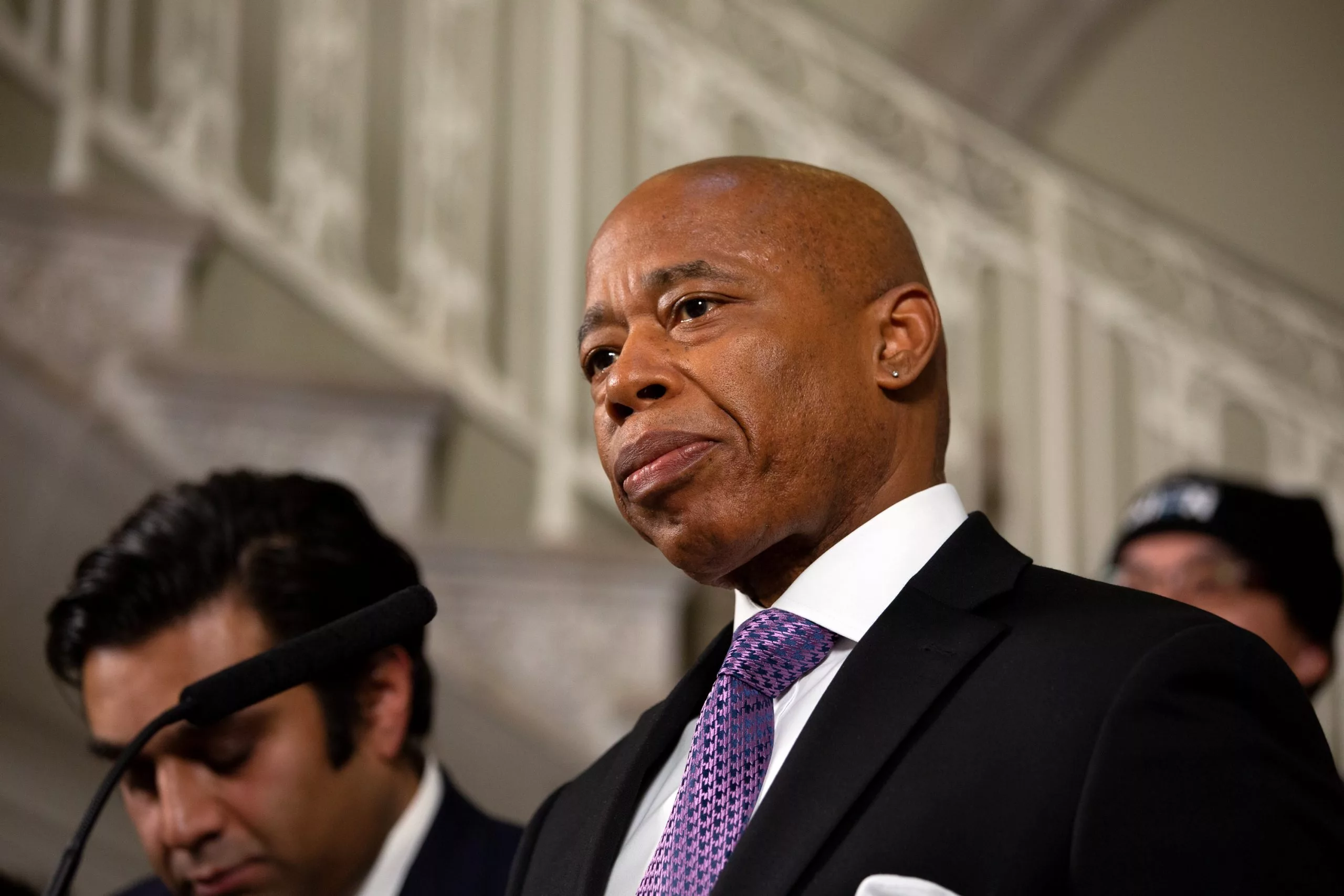On Thursday, amid peak holiday shopping season, thousands of unionized Amazon workers at seven logistics warehouses across the country walked off the job. Organized by the International Brotherhood of Teamsters union, the strike is the largest coordinated labor action against the company in U.S. history.
Nearly 10,000 Amazon delivery workers took to the picket line after Amazon failed to sit down at the negotiation table by the December 15 deadline set by the union.
“If your package is delayed during the holidays, you can blame Amazon’s insatiable greed,” Teamsters General President Sean M. O’Brien said in a statement. “We gave Amazon a clear deadline to come to the table and do right by our members. They ignored it.”
Earlier this week, the Senate Health, Education, Labor, and Pension (HELP) Committee, led by Sen. Bernie Sanders, released a report after an 18-month investigation that reviewed nearly a decade’s worth of Amazon workplace injury data. The findings showed that Amazon had manipulated workplace injury rates to make it look as if their facilities were safer than they actually were.
The committee also found that the company’s insatiable quest for speed has put workers’ health and safety at risk. Amazon warehouses are among the most dangerous places to work in New York. An Occupational Safety and Health Administration report found that in 2022, Amazon workers were injured at a rate of 8.2 cases per 100 workers as opposed to 6.9 cases per 100 workers at non-Amazon facilities in the state.
Workers like Colombian immigrant Yuli Lema, 35, can’t afford to get hurt on the job.
“This is a problem because I don’t have insurance so I don’t receive any pay if I’m sick or hurt,” she said. Across the country, Amazon delivery workers are demanding an increase in wages, health benefits, and safer work environments. In New York, it is immigrant workers who are leading that fight.
At Amazon’s DB4 Distribution Center, located in a heavily industrial part of Maspeth, Queens, delivery workers are not directly employed by Amazon but are instead employed by nearly a dozen third-party contractors that serve as middlemen between Amazon and its employees. The Maspeth facility is one of 46 Amazon warehouses across New York state.
Despite wearing Amazon uniforms, driving Amazon-branded trucks, and working at an Amazon warehouse, workers are not employed directly by the company. Notoriously anti-union, Amazon has attempted to insulate itself from workers by outsourcing most of its last-mile transportation to outside Delivery Service Partners (DSP).
The workers on the picket line in Queens this week have only been a part of the union for two months, starting when the National Labor Relations Board, Region 31 (NLRB) issued a formal complaint against Amazon affirming that the company is indeed a joint employer of its DSP drivers and is legally required to recognize and bargain with the Teamsters.
The NLRB determined that if a company like Amazon set the terms and conditions for hours worked, scheduling, assigning duties, and supervised performance, they are a joint employer.
Since the NLRB’s complaint in September, delivery worker Emmanuel Trinidad, 31, says Amazon doubled down in its efforts to discourage the union drive.
“Amazon is very anti-union, if you go into the breakroom you see signs that say you can say no to the Teamsters, and all these signs are false advertising about unions,” he said. “What I tell people is if unionizing wasn’t the right thing, why would Amazon invest all this money to sway you away from the union?”
Trinidad, whose family immigrated from the Dominican Republic, has worked for Cornucopia Logistics, an Amazon DSP, at the DB4 warehouse for a little over a year. Over the course of his employment, he has emerged as one of the most influential and vocal worker leaders at the facility.
Cornucopia Logistics has a history of wage theft. A 2016 investigation by the New York Attorney General’s office found that between 2014 and 2016 Cornucopia failed to pay its workers, who primarily deliver for Amazon, for all hours worked. As a penalty, the company was ordered to pay $100,000 in restitution.
Part of what inspired Trinidad to get involved in the campaign was experiencing firsthand the benefits of a union that his father enjoyed.
“The reason I’m for the union is that my dad was in a union,” he said. “He worked for a candy company for like 40 years and he is now a retired union member. My dad came from the Dominican Republic and now he owns a condominium and everything. He wouldn’t have that if it wasn’t for the union.”
Like most of his fellow workers, Trinidad earns about $22 an hour, which is well above the state minimum wage. But with a lack of job security or any health benefits, he believes that the only way to elevate his pay and working conditions is through a union.
“We just want what we were owed: better pay, safer job conditions, and job security,” he said. “The people that are hired now go to work and they aren’t appreciated by Amazon. After the peak [season], they are all laid off.”
Along with being anti-union, Amazon is also notorious for its high employee turnover rate. Internal documents revealed that the company had an annual employee turnover rate of 150 percent, double the industry average. Amazon’s proclivity to burn out its workforce is partly due to the demanding work culture the company fosters, Trinidad said.
Workers are surveilled closely throughout the day to maximize their time on the job down to the minute. If a worker chats too long with a coworker or takes a long bathroom break they could be reprimanded. With workers pushed too fast, injuries are commonplace.
Alpha Diara, a 42-year-old immigrant from Mali, says that the fast-paced demands of the job have taken a toll on his body, but there is little he feels he could do without a union contract.
“If you get sick, you’re sick; you don’t get paid nothing,” he said. “I fell this week, it was raining, and I slipped, but I still continued to work. I have to come even though my feet hurt and I can barely walk.”
“They tell us they want us to make the deliveries in 10 hours, but it’s impossible; there are just too many packages,” Diara’s coworker Lema said. “They always complain that it’s not fast enough.”
Not only is she forced to work faster, she is expected to work in a dirty truck.
“I’m on strike because we need better conditions for the workers,” she said. “For example, they need to clean the vans. The vans are very disgusting. Sometimes you see bottles full of pee and broken boxes.”
The strike is ongoing. Along with the Queens facility, the Teamsters are currently striking at a facility in Atlanta, Illinois, and three other facilities in California. Workers show their solidarity by holding pickets at hundreds of other warehouses across the country. The Teamsters claim that if the strike not only continues but spreads, it has the potential to disrupt Amazon’s ability to deliver packages during the height of the holiday season.
Responding to Documented’s request for comment, Amazon denies that the strike is having any adverse effect on its logistic operations and claims that the Teamsters are utilizing outside agitators to intimidate other Amazon employees.
“For more than a year now, the Teamsters have continued to intentionally mislead the public, claiming that they represent thousands of Amazon employees and drivers,” Amazon spokesperson Kelly Nantel said.
“The truth is that the Teamsters have actively threatened, intimidated, and attempted to coerce Amazon employees and third-party drivers to join them, which is illegal and is the subject of multiple pending unfair labor practice charges against the union.”
Trinidad affirms that Amazon pushed them to strike during the holidays.
“Amazon will go around and paint us as the bad guy for striking on the holiday session,” he said. ”We are not being spiteful, we are not striking just because it’s Christmas. We gave them a deadline 10 days before Christmas.”
